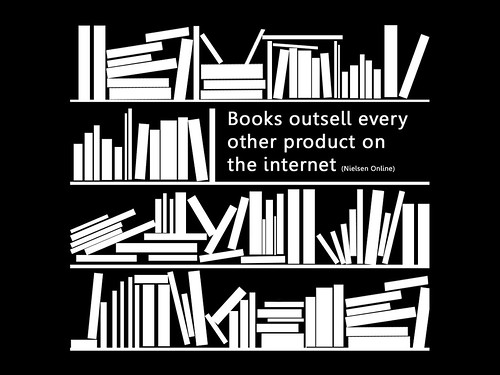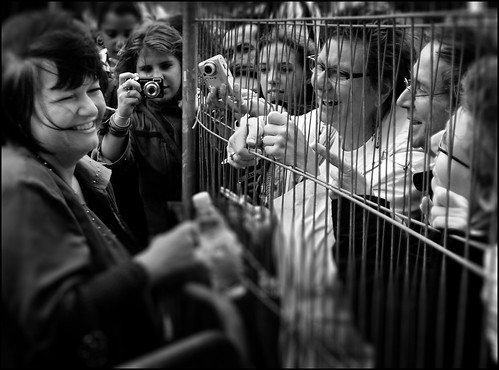I had a sick day yesterday. So, after visiting the doctor and the pharmacy to get some industrial strength antibiotics, I decided to put some time towards preparing for my thirty minute slot during the upcoming Will Richardson day. It's pretty cool that he's coming to little old Adelaide and that not only do I get to attend the event and see one of my original Web 2.0 teachers and major early influences (along with Downes and Blackall) present but I get to show one of my own contributions as an "influential South Australian educator" in my use of a wiki as a platform for learning. I hope there's a big crowd coming because if I'm being chosen as an innovative user of read/write technologies, then we have a long way to go here in South Australia in realising the potential of these tools for our students' learning, and Will's insights and influence will be invaluable. I'm hoping I get to meet and talk to him as well - after all, he was the second person to ever comment on my blog and that was a major encouragement when I felt at the time that my attempts at establishing connections were somewhat futile.
So, that will be cool.
It is interesting that I'm going to be giving an overview of the Spin The Globe project because that was another opportunity to work with someone I highly respect for his writing in the edublogosphere in Doug Noon. It's also about 15 months since any work was done on that wiki so it really feels a bit dated in terms of being innovative. Anyway, I decided to re-listen to the Teachers Teaching Teachers podcast that Doug and I were invited to be a part of so I could isolate some audio quotes from Doug to add to my presentation. I was getting towards the end of it when the host, Paul Allison asked us if we thought that we'd continue to work on the wiki in 2008. Interestingly, we both said yes at the time and that has turned out to be an incorrect prediction. Both of us ended up following other priorities last year and so the wiki stands as a digital artifact of our little experiment in collaboration. Some of Doug's quotes are extremely insightful and offer the reasons (more apparent now in hindsight) why we both have not returned our students to the project.
"One of the huge ironies of the internet is that I think people are paying attention to stuff far away and ignoring their local area."
"I saw them starting to team up in the classroom at the same computer and I began thinking about collaboration and how you can't draw a line around it. If people are collaborating, it might happen at any level of the process."
"Graham and I were talking about how Alaska and Australia was an awfully big chunk of real estate to bite off for sixth graders and we should've have probably, and I told my kids feel free to change references to Alaska to Fairbanks. You know we can narrow it down from there."
Especially at the age group involved in the primary (elementary) school sector, getting students to look at concepts through local issues, before taking on the global has been my priority since the fading of the Spin The Globe wiki project. I'm not discounting the important of global awareness but one of the outstanding insights both Doug and I observed was how little our classes really knew about their own place in the world.
So, listening to and looking back at something that I've been asked to push forward as a "good example" of wiki use has been an interesting exercise, and has made me appreciate Doug's perspective and wisdom even more. I hope that the educators coming along to see Will (and in a very minor way, myself and the other two South Australian educators also doing 30 minute showcases) walk away with the feeling that read/write tools are a great fit for the progressive pedagogies of Australian educators, rather than feeling that they have to get their kids blogging or get on the lookout for a global wiki partner. The question "What do you want the kids to learn?" has to be front and centre and I sure hope the goal is not just how to use a wiki.
On a slight side track, Wes Fryer's recent trip to New Zealand and his willingness to share his thinking as he participated in the Learning@School conference confirms what I sort of suspect in terms of a US view of what education is compared to an Antipodean perspective. It was very interesting to read his reactions from Pam Hook's keynote (does he read Artichoke?) especially this one [Wes' notes were in caps, so he wasn't shouting!]:
THIS IS A REALLY INTERESTING KEYNOTE. THIS DOES NOT HAVE MUCH TO DO WITH TECHNOLOGY INTEGRATION. PERHAPS THIS IS GOOD TO HAVE THE FOCUS ON LEARNING RATHER THAN SIMPLY THE USES OF TECHNOLOGY. THIS IS NOT WHAT I WAS EXPECTING FOR A KEYNOTE, HOWEVER.
From my understanding, Wes would be thought of as a progressive US educator and here he was having a lightbulb moment (correct if I'm wrong and you're reading, Wes) and Jane Nicholls weighed in with some telling words in the comments of this post:
In New Zealand effective learning and teaching has everything to do with technology integration. Trevor Bond states that an ineffective teacher plus technology equals an expensive ineffective teacher. For technology to be successfully integrated there must first be a solid pedagogical platform. Teachers must be reflective and have a good knowledge of their own teaching philosophy. They need to assess why and how the technology will enhance their classroom practice and they need to know about their students and how different technologies will extend their reach.
She writes more that extends that piece of thinking and then Greg Carroll put in his point of view from which I've isolated this poignant quote:
Technology can very easily GET IN THE WAY of effective learning and teaching - and it is the order of those two things that makes all the difference. Learning is about what the learner NEEDS and NOT what the teacher does.
I think this is what is missing from some of the "viral" videos about future learning around the place in that it seems the message is that creativity and collaboration can only be fuelled by technology. That these need to be promoted for classrooms still amazes me - and they are seen by many as new learning for this century amazes me even more so. I can really sense Tom Hoffmann's long standing and reasonably regular frustration.
So, tying this all back to my wiki reflecting is that Doug and my experiences with Spin The Globe show that collaboration is not a worthwhile goal by itself and that it is pretty easy to be seduced by the techno-possibilities. By all means, if technology provides the best learning experience or is unavoidably entwined, then go for it. But if it isn't really what the students need, then forget about it and try a different approach.




